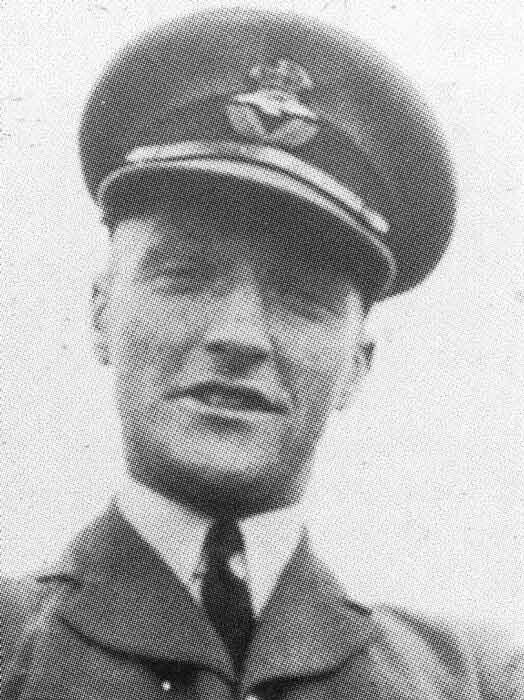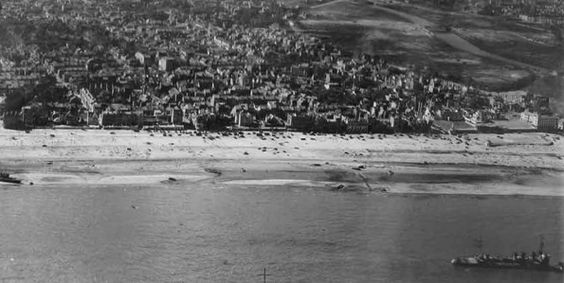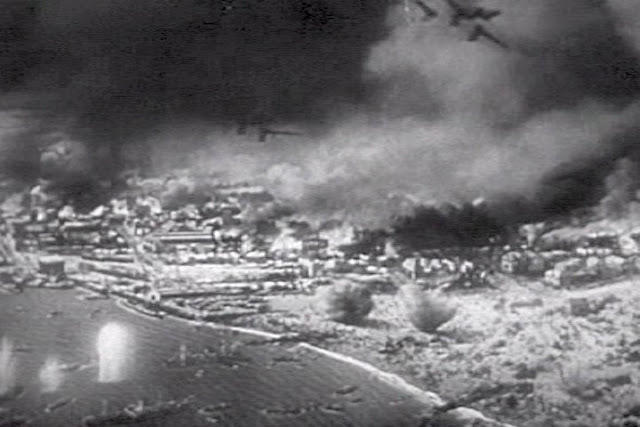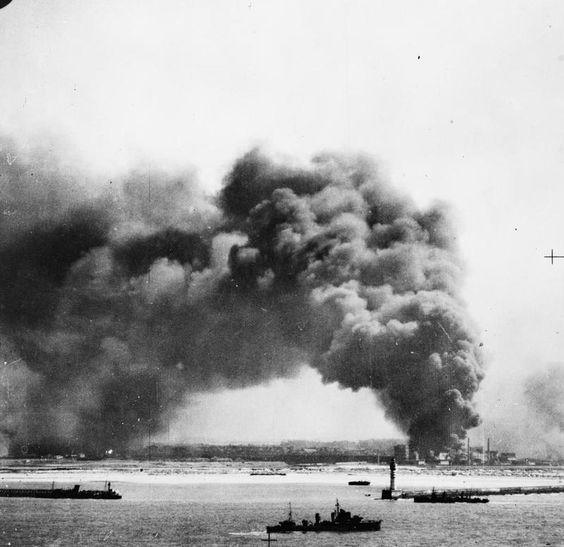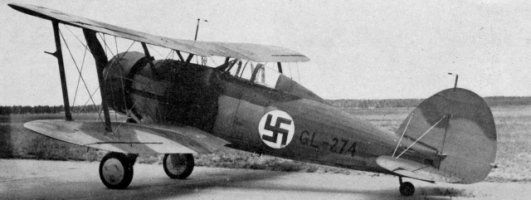Saturday 20 July 1940
During the afternoon, the Luftwaffe attacks destroyer HMS Acheron off the Isle of Wight. It is damaged by near misses and proceeds to Portsmouth for repairs. The Luftwaffe loses two Bf 109s of II,/JG51, while the RAF loses three fighters of No. 32 Squadron. Joseph "Pips" Priller, one of the Luftwaffe's great aces, gets one of the kills.
Luftwaffe Stukas of II,/StG1 attacks Convoy CW 7 off Dover. They sink destroyer HMS Brazen (sinks on the 21st, one death) and 960 ton freighter Pulborough, while damaging 710 ton freighter Westown and Norwegian freighters Kollskegg and Nina Borthen. The Germans lose two planes from 3,/JG27. The RAF loses three fighters.
Losses for the day are roughly even. The British lose 5 Hurricanes, a Spitfire and a Blenheim bomber, and the Luftwaffe lose 6 fighters, a couple of bombers and a seaplane.
The Gruppenkommandeur of JG27, Major Helmut Riegel, is shot down over Sark, Dover by Hurricanes of RAF No. 501 Squadron. His replacement is Major Eduard Neumann.
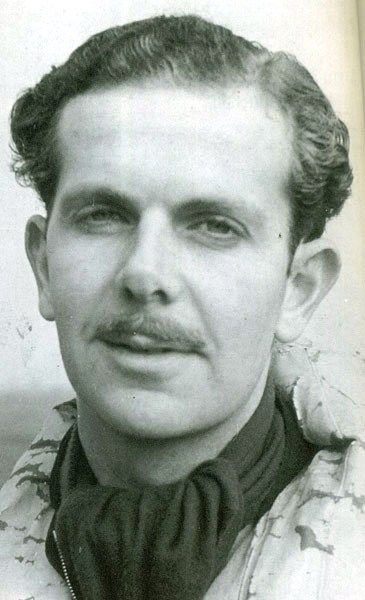 |
| S/L Aeneas RD "Don" MacDonell of No 64 Squadron RAF, one of the pilots fighting over the convoys in the Channel. |
At night, RAF Bomber Command sends raids against Düsseldorf and Wismar. A force from Hemswell-Lincolnshire attacks battleship Tirpitz, under construction at Wilhelmshaven, but makes no hits.
The German night fighter force gets its first victory. Pilot Werner Streib of 2,/NJG1, in a prototype Do 17Z (one of a kind), shoots down a British Whitley bomber over the Ruhr without the use of radar. This kind of night visual interception will later be known as "Wild Boar." Streib himself becomes known as “The Father of Night Fighting.”
The Luftwaffe conducts minelaying operations off England, and the Germans lose an FW200C of 1,/KG40. The Luftwaffe bombs Stirling during the night, causing some damage to vehicles at the Royal Ordnance Factory in Forthside.
Reichsmarschall Goering orders Oberst (Colonel) Josef Kammhuber to follow up on the decisions made on 26 June and organize an expanded night fighter force. Kammhuber, a good organizer who briefly had been a prisoner of the French, will command the force. Kammhuber sets to work preparing a night fighter defensive line across Europe for Nachtverteidigung, or the protection of the skies. This becomes known as the Kammhuber Line, and Kammhuber effectively becomes the Night Fighter Czar with priority to get whatever equipment he needs.
3,/JG77 begins operating out of Tempelhof Airport in defense of Berlin.
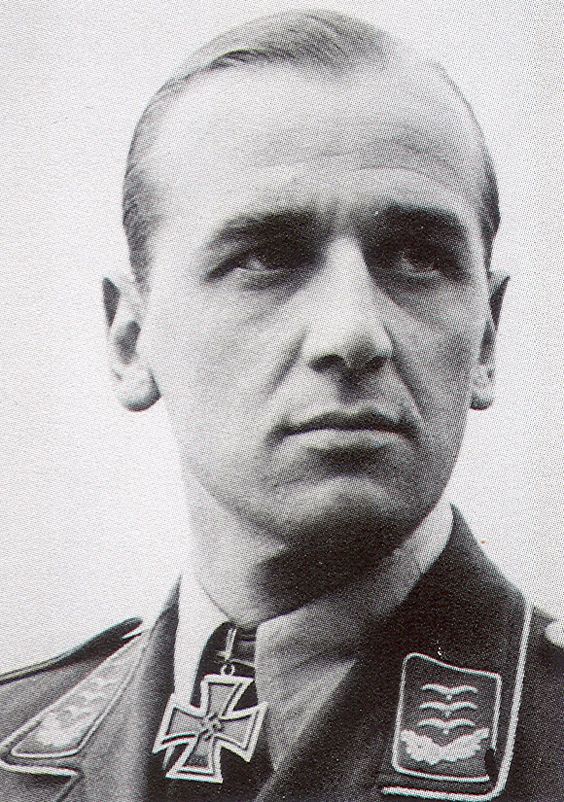 |
| Werner Streib (1911 - 1986). |
Destroyers HMS Havelock and Vanoc collide near Liverpool, but the damage is minor.
The British Home Fleet at Scapa Flow receives an erroneous report that German battlecruiser Gneisenau had left its port at Trondheim. It organizes its forces to intercept, but the report is proven false.
Convoy OA 187 departs from Methil, Convoy OB 186 departs from Liverpool, Convoy SL 40F departs from Freetown.
Battle of the Mediterranean: HMS Eagle launches airstrikes by Swordfish torpedo bombers on Tobruk, trying to finish off the damaged Italian cruiser Bande Nere. They sink Italian destroyers Ostro and Nembo in Tobruk Harbor, also damaging 2333 ton freighter Sereno. The British lose two planes. The Italians abandon Tobruk as a naval base, though of course, it remains a formidable fortress.
At Malta, there is an air raid at 02:42 by three airplanes which attacks the airbase at Hal Far and at Kalafrana. The raid causes extensive damage at Kalafrana, damaging a Sunderland Flying Boat and other assets. One of the Italian planes is damaged.
Morale at Malta is faltering, so the War Office plans a propaganda campaign to prop up the citizens' spirits.
German Military: Wehrmacht soldiers are warned to avoid too much mingling with the French in Paris and to patronize Wehrmacht coffee shops and canteens (which are being set up). France, particularly Paris, quickly is gaining a reputation as the favorite billet for Wehrmacht soldiers.
British Government: With Hitler having given his "Last Appeal to Reason" speech to the Reichstag on the 19th, there are some within the British government who at least want to open some kind of negotiations with the Reich. Churchill, however, remains adamantly opposed.
The Ministry of Home Security gives statistics on recent civilian casualties. During the month beginning 18 June 1940, there have been 336 civilian deaths and 476 other casualties.
Churchill continues to reshuffle the military top commands. He appoints Field Marshal John Standish Surtees Prendergast Vereker, 6th Viscount Gort, the former BEF commander, Inspector of Training and the Home Guard. Sir Alan Brooke, the new commander of the Home Guard, has full authority, so this is a meaningless post. However, Gort remains under consideration for posts with real authority, though not for anything critical.
New Zealand: The Chief of the General Staff and Chief of the Air Staff depart Auckland and head for Suva on HMS Achilles for conferences.
France: New Hebrides Islands residents vote to join Charles de Gaulle's "New France."
Vichy France installs Admiral Decoux as Governor-General of French Indochina in place of General Catroux. This solidifies Vichy France's control over this sensitive foreign possession.
Dutch Homefront: In retaliation for the refusal of Dutch colonies to surrender, the Germans arrest Dutch leaders.
Italian Homefront: The University of Rome seeks the return of the Mona Lisa from the Louvre.
British Homefront: New car sales are banned.
American Homefront: Glenn Miller tops the charts with "The Woodpecker."
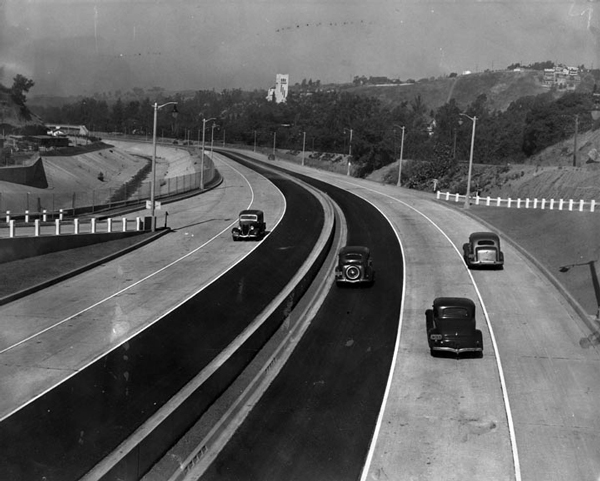 |
| The first Highland Park segment of the Arroyo Seco Parkway on its opening day, July 20, 1940. Courtesy of the Herald-Examiner Collection, Los Angeles Public Library. |
July 1, 1940: Vichy France
July 2, 1940: Arandora Star
July 3, 1940: Operation Catapult at Mers El Kébir
July 4, 1940: Romania In Crisis
July 5, 1940: The Five Freedoms
July 6, 1940: Hitler's High Point
July 7 1940: Dakar And Ringo
July 8, 1940: Tea Rationing in England
July 9, 1940: Battle of Calabria
July 10, 1940: Battle of Britain Begins
July 11, 1940: "Nous, Philippe Petain"
July 12, 1940: Enter Laval
July 13, 1940: German Surface Raiders Attack!
July 14, 1940: Bastille/Mourning Day
July 15, 1940: Tallest Man Dies
July 16, 1940: Plans for Sea Lion
July 17, 1940: Burma Road Closed
July 18, 1940: FDR Runs Again
July 19, 1940: Last Appeal To Reason
July 20, 1940: First Night Fighter Victory
July 21, 1940: Soviets Absorb Baltic States
July 22, 1940: First RAF Night Fighter Victory
July 23, 1940: Invasion False Alarm
July 24, 1940: The Meknés Incident
July 25, 1940: Black Thursday for RAF
July 26, 1940: Capture The Duke?
July 27, 1940: What's Up, Doc?
July 28, 1940: Destroyers Pulled From Dover
July 29, 1940: Barbarossa On The Burner
July 30, 1940: Hitler Delays Sealion
July 31, 1940: Bloody Wednesday of Olkusz
2020

